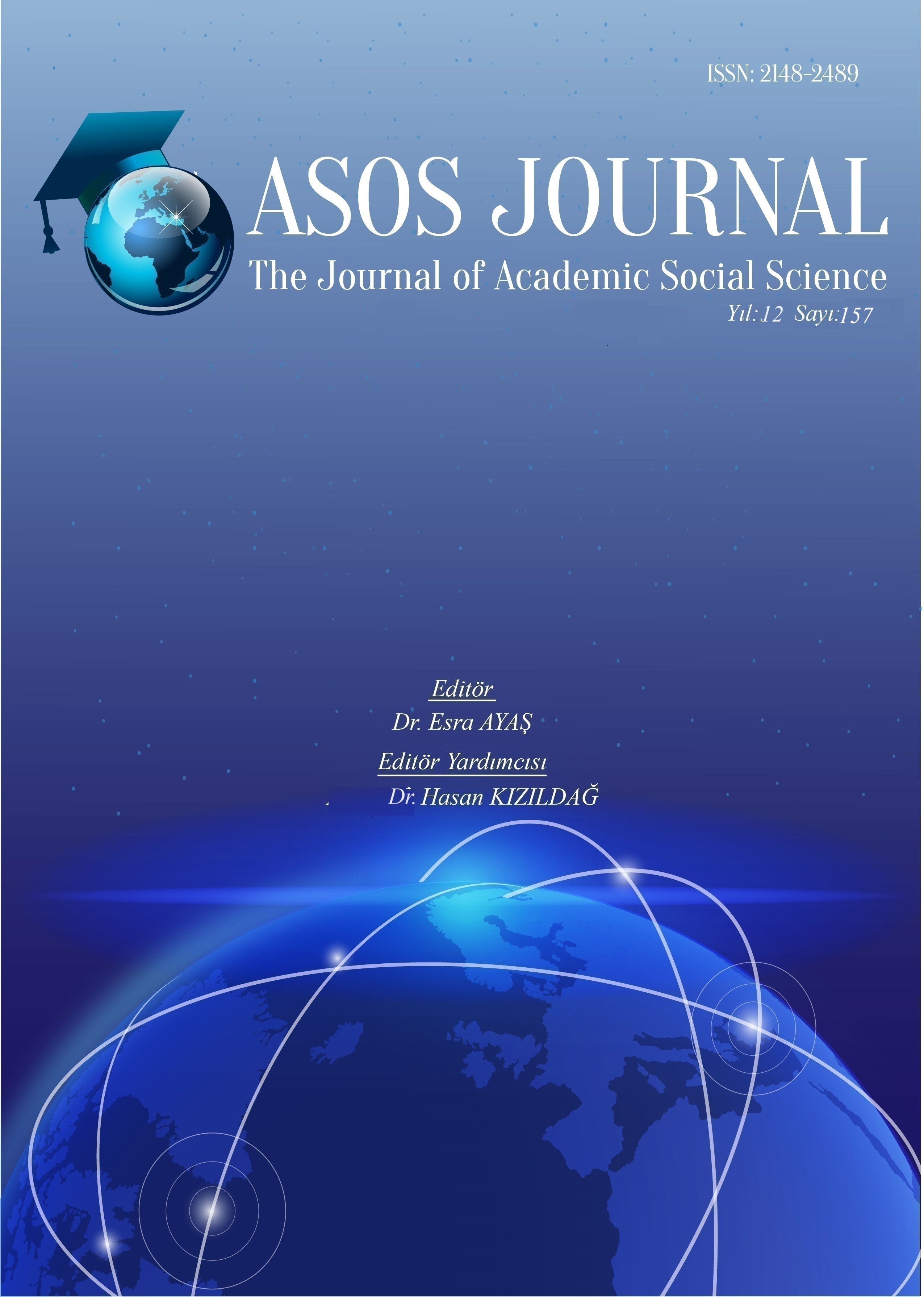İDEAL DEVLETİN YERYÜZÜNE İNİŞİ: PLATON’UN “DEVLET” VE “YASALAR” ADLI ESERLERİNİN TEORİK-PRATİK BAKIMDAN KARŞILAŞTIRILMASI
Author :
Abstract
Bu makale, Platon'un Devlet ve Yasalar adlı eserlerinin esas konusu olan ideal devlet anlayışını karşılaştırmalı olarak incelemektedir. Bilindiği üzere, Platon’un Devlet ve Yasalar adlı eserleri, onun siyasal programındaki ideal devlet teorisinin ve ideal olanın pratiğe intikalinin iki önemli dayanağını oluşturur. Platon, Devlet’te teorik olarak savunduğu ideal devleti, Yasalar’da daha pratik bir yaklaşımla yeniden yorumlar. Dahası Devlet’te ortaya koyduğu birçok radikal görüşü Yasalar’da güncelleyen Platon, teorik ideallerin pratikte uygulanabilirliğini sorgular. Bu süreç, elbette Platon’un siyaset felsefesinde önemli bir dönüşüme işaret eder. Fakat söz konusu eserler, Platon'un ahlak ve siyaset arasında kurduğu ilişki ile insan ve devlet arasındaki bağı anlamamıza rehberlik etmesi açısından da oldukça kayda değerdir. Öte yandan Platon'un Sicilya’da ideal devletini hayata geçirme çabaları başarısızlıkla sonuçlansa da bu deneyim onun felsefi yaklaşımında ciddi değişimlere yol açar. Bu değişimle beraber özellikle son eseri olan Yasalar’da, ideal devleti, pratiğe gösterdiği öneme binaen dönüştüren Platon, her ne kadar Popper’in ciddi eleştirileri olsa da adalet, mutluluk ve siyasal düzenin iç içe geçtiği daha uygulanabilir bir devlet modeli ortaya koymuştur. Bu bağlam üzere söz konusu makale, Devlet ve Yasalar eserleri arasındaki felsefi dönüşümü ele alarak, Platon’un devlet anlayışındaki epistemolojik ve ontolojik derinliği, zımni ve açık totaliter söylemleri de göz önüne alarak eleştirel bir bakışla detaylandırmaya çalışmakta, teorik bilginin ve pratik bilginin bu iki eserde nasıl konumlandırıldığını tartışmaktadır.
Keywords
Abstract
This article comparatively analyses Plato's conception of the ideal state, which is the main subject of his State and Laws. As is known, Plato's State and the Laws constitute two important pillars of the theory of the ideal state in his political programme and the translation of the ideal into practice. Plato reinterprets the ideal state, which he defended theoretically in the State, with a more practical approach in the Laws. Moreover, Plato, who updates many radical views he put forward in the State in the Laws, questions the applicability of theoretical ideals in practice. This process, of course, marks an important transformation in Plato's political philosophy. However, the works in question are also noteworthy in terms of guiding our understanding of the relationship Plato establishes between morality and politics and the bond between man and the state. On the other hand, although Plato's efforts to realise his ideal state in Sicily ended in failure, this experience leads to serious changes in his philosophical approach. With this change, especially in his last work, The Laws, Plato transformed the ideal state in terms of its importance to practice and, despite Popper's serious criticisms, he put forward a more viable state model in which justice, happiness and political order are intertwined. In this context, this article discusses the philosophical transformation between the State and the Laws, critically elaborates the epistemological and ontological depth of Plato's understanding of the state, taking into account the implicit and explicit totalitarian discourses, and discusses how theoretical knowledge and practical knowledge are positioned in these two works.





